In a world flooded with information, mental models constitute a breath of fresh air, allowing us to think more clearly and, hopefully, make better decisions. What are mental models?
Mental models are simplified representations of the complex real world. They are like a set of crutches for our brains, which aid us when making decisions. But sometimes these crutches may hamper, rather than help us. Cognitive biases are deficiencies in how we think and behave. Thus, recognizing them is crucial in mitigating poor decision making and essential to finesse our mental toolbox.
The following books offer insights into recognizing cognitive biases and learning how to leverage mental models.
1. The Decision Book: Fifty models for strategic thinking
by Krogerus and Tschäppeler
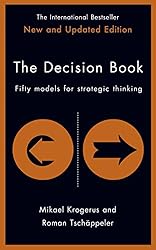
The Decision Book can be used as a quick introduction to mental models. It aims to be practical, offering models on how to understand and improve yourself, as well as others. Far from being a self-help book in the traditional sense, it offers a buffet of mental models for you to choose and apply depending on your circumstances. Each item is short - maybe too short - akin to a snack, leaving you hungry for more.
2. The Art of Thinking Clearly: Better Thinking, Better Decisions
by Rolf Dobelli
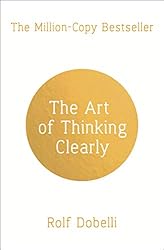
Rolf Dobelli presents a collection of mental biases packaged in an attractive manner, with convincing examples along the way. He taught me why teams are lazy and convinced me to give up on reading the news. It’s impossible not to find time to read it, as each cognitive bias spans only a few pages. Being so easy and fun to read, you can go through it bit by bit whenever you have 5 minutes to spare.
3. The Black Swan: The Impact of the Highly Improbable
by Nassim Nicholas Taleb
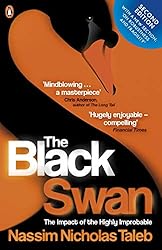
A slight departure from the style of the previous books, The Black Swan administers the ultimate red-pill in terms of how the world works, and will inevitably change the way you view e v e r y t h i n g.
The pretext of the book is that of Black Swans, events which have 3 characteristics:
- they have a massive impact
- they cannot be predicted
- retrospectively, it is easy to find explanations for why they happened
For example, the terrorist attacks on 9⁄11 were a Black Swan.
Nonetheless, the book is a savory concoction of psychology, politics, history and philosophy, a journey in which you are given counter-argument after counter-argument (emphasis on counter) to long-held beliefs about how we predict, Platonicity, the role of “experts” and bureaucrats, and about epistemology in general.
Spoiler alert: we just can’t predict, preconceived ideas of what should work often fail when put to the test in the real world, and “experts” and central-planning bureaucrats are suckers.
Read it to avoid being a sucker yourself.
4. Thinking, Fast and Slow
by Daniel Kahneman
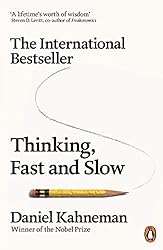 Daniel Kahneman, the father of behavioural economics, has given us the bible of cognitive biases and mental models.
Thinking, Fast and Slow is a must-read if you really want to consolidate your understanding of how we think.
Daniel Kahneman, the father of behavioural economics, has given us the bible of cognitive biases and mental models.
Thinking, Fast and Slow is a must-read if you really want to consolidate your understanding of how we think.
Basically, each of us processes information using two systems. System 1 processes information automatically, in a continuous fashion, based on heuristics, and is prone to errors, while System 2 is more analytical and calculated, requiring more concentration and effort.
The first couple of parts are harder to read until you get used to Kahneman’s style, but you’re guaranteed to find dozens upon dozens of gems in the book. I especially like the last two parts about choices and about our two selves. These certainly satisfied my need of direction, at a time in my life when I was searching for a framework for optimizing life, i.e. what should my aims be? what sacrifices should I make now, so that I’ll be better off later? how do I expose myself to more opportunities? what makes me happy and content?
If you read just one book from this list, make this your top choice.
5. Antifragile: Things that Gain from Disorder
by Nassim Nicholas Taleb
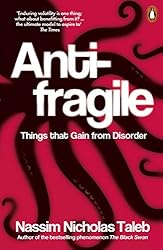 Taleb continues his crusade against suckers in his characteristic, erudite, sometimes aggressive style. This time, he
provides a guideline for protecting ourselves against Black Swans of all kinds, whilst exploring the trichotomy between
fragility, robustness, and antifragility.
Taleb continues his crusade against suckers in his characteristic, erudite, sometimes aggressive style. This time, he
provides a guideline for protecting ourselves against Black Swans of all kinds, whilst exploring the trichotomy between
fragility, robustness, and antifragility.
If you’ve enjoyed The Black Swan, definitely consider buying this.
Conclusion
I hope you’ve enjoyed this list and that it made you curious and willing to learn more about mental models. If you have suggestions for other books on this topic, please mention them in the comments below. And remember, reading books is antifragility against ignorance.